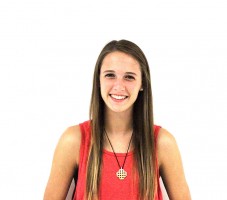AP Calculus BC.
Statistics.
These are three of the most common math classes students take during their senior year.
During the current enrollment process, juniors should become informed about these options and pick the right class for them. So, for some help deciding if any of these classes are for you, get some insight from the teachers themselves.
Statistics
Math teacher K. Dean Snell said Statistics is good for everyday life.
“Statistics are used and observed almost every day, whether you are a math person or not,” he said. “They are in the news, in references to gas prices, in percentages, in businesses, and in research. Most people don’t understand or can’t interpret the true meaning of statistics.”
Snell said he encourages students to apply what they learn to their everyday lives.
“When they walk out of class, I ask them to question all the statistics they see in the news or on TV,” he said.
Snell said he enjoys teaching the second semester of this class the best.
“It’s the inferential statistics side so it has to do with making inferences. The data we look at is very real-world applicable and comes from real studies.”
Snell said the hardest thing about Statistics is putting what is observed into words.
“Students have to learn to interpret data and write about it in narrative from. Most students aren’t used to having to write in a math class.”
Snell said Statistics offers a unique project.
“[The students] get to do their own research and collect data. They create a survey and the get to choose any topic. I think it’s good for them to pick their own topic because then they will actually want to do it since it interests them.”
AP Calculus
Math teacher Adam Wade said Calculus requires higher-level thinking.
“Calculus teaches students how to think,” Wade said. “In Calculus, the thinking process has to do more with ‘How do I approach this problem?’ and there is more thinking involved.”
Wade said he likes teaching the seniors.
“I like the higher level math classes because they are a real challenge and there are some higher level thinkers,” he said.
Wade said the high-level of thinking in this class is the most difficult aspect of it.
“In a lot of classes, students can just get used to learning the steps of how to solve things,” he said. “But, in calculus you have to be able to apply your knowledge.”
Wade said students who succeeded in Honors Precalculus and Trigonometry usually end up taking AP Calculus AB. In order to take AP Calculus BC the student must be coming from the Accelerated Precalculus and Trigonometry.
“AP Calc BC starts further in than AP Calc AB,” Wade said. “The accelerated Precalc class goes further than the honors.
Wade offered his advice for enrolling in Calculus.
“I would suggest for anyone doing any career related to math or science to take Calculus. You don’t have to necessarily love it, but you have to be willing to challenge yourself.”




